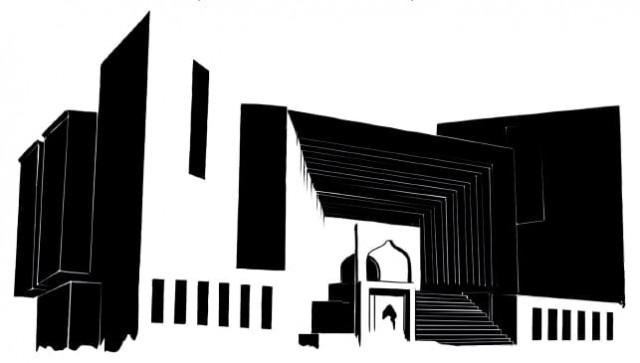Justices Ramday, Jaffery: ‘SC ad-hoc judges need no clearance’
Full court reference in honour of Justice Ramday cancelled.

According to article 182 of the constitution as amended in the 19th amendment, if an ad-hoc judge is appointed within three years of his retirement, there would be no need to take any approval from the parliamentary committee. For such ad-hoc appointments, the chief justice would have to send the proposal to the president with binding effect after consulting the judicial commission only.
“If at any time it is not possible for want of quorum of judges of the Supreme Court to hold or continue any sitting of the court, or for any other reason it is necessary to increase temporarily the number of judges of the Supreme Court, the chief justice of Pakistan in consultation with the judicial commission as provided in clause may, in writing;
(a) with the approval of the president, request any person who has held the office of a judge of that court and since whose ceasing to hold that office three years have not elapsed; or
(b) with the approval of the president and with the consent of the chief justice of a high court, require a judge of that court qualified for appointment as a judge of the Supreme Court, to attend sittings of the Supreme Court as an ad hoc judge for such period as may be necessary and while so attending an ad hoc judge shall have the same power and jurisdiction as a judge of the Supreme Court,” article 182 states.
The judicial commission includes, Chief Justice Iftikhar Muhammad Chaudhry as chairman, Justice Javed Iqbal, Justice Shakirullah Jan, Justice Tassaduq Jilani, Justice Nasir-ul-Mulk, Law Minister Babar Awan, Attorney-General Maulvi Anwarul Haq and Khalid Ranjha representative of Pakistan Bar Council.
Professor Khurshid Ahmed, who is a member of the parliamentary committee on constitutional reforms for 18th, 19th amendment, while talking to The Express Tribune said that before the new amendments, the chief justice was not required to consult anyone before sending proposal to the president for appointment of an ad-hoc judge. He said that under the amended constitution the chief justice is required to consult the judicial commission for ad-hoc appointments when these appointments fall as inscribed in article 182.
“The approval of judicial commission is mandatory for such appointments,” he said.
Meanwhile the Supreme Court of Pakistan on Tuesday cancelled the full court reference in honour of Justice Khalilur Rehman Ramday on the eve of his retirement on February 17.
In view of the decision of the full court in its February 14 meeting to initiate the process of Justice Ramday’s appointment as an ad-hoc judge of the Supreme Court of Pakistan, the reference has been cancelled, stated the press note issued by the Supreme Court.
A full court meeting under the chairmanship of Chief Justice Iftikhar Muhammad Chaudhry on Monday passed a resolution for a one-year extension in Justice Ramday’s term as well as for the appointment of Justice (retd) Rahmat Hussain Jafferey as an ad-hoc judge.
Published in The Express Tribune, February 16th, 2011.



















COMMENTS
Comments are moderated and generally will be posted if they are on-topic and not abusive.
For more information, please see our Comments FAQ